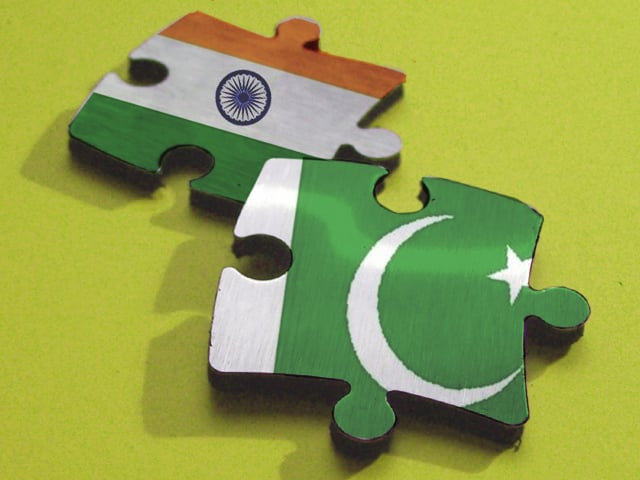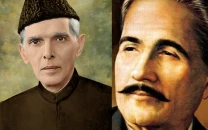‘Peace through Law’ conference: ‘Jurists can foster trust between Pakistan, India’
Justice Chaudhry says Pakistan can take on the challenge of militancy.

‘Peace through Law’ conference: ‘Jurists can foster trust between Pakistan, India’
Chief Justice Iftikhar Muhammad Chaudhry said on Monday that although Pakistan has suffered immensely from militancy and terrorism due to constitutional deviations and a weak rule of law, the country has the resolve and institutional strength to take up the challenge.
Addressing a delegation of visiting Indian lawyers at a conference organised by the Supreme Court Bar Association, titled “Peace through Law”, Justice Chaudhry said that today’s Pakistan has successfully transitioned itself to follow the rule of law, based on a complete implementation of the Constitution.
“Our law-enforcement agencies are striving hard to check this menace [growing militancy and terrorism] and the courts, including anti-terrorism courts are geared to handle these cases expeditiously and dispense justice in a forthright and transparent manner,” he said. “Therefore, I do not see any reason why Pakistan should not regain its position as a civilised and progressive country which is at peace with itself and with countries in the region and beyond.”
Justice Chaudhry also used the occasion to point out that Pakistan and India are facing the same kinds of challenges. The judiciaries of both the countries, he said, have a common cultural, social and legal background, as they drew inspiration from the same source of jurisprudence and followed the same pluralistic and all-encompassing representative democracy, based on the twin principles of rule of law and supremacy of the Constitution.
Given the peculiar evolution of democratic institutions and commonality in legal principle in the two countries, both could learn from each other’s jurisprudence.
According to Justice Chaudhry, the Indian Supreme Court has rendered benchmark judgments in the field of public interest litigation. Similarly, Pakistan’s Supreme Court has also endeavoured to ensure the implementation of fundamental rights of citizens as enshrined in the Constitution by taking suo motu notices in the wider public interest.
“Pakistan and India are among those two nations whose very existence was made possible primarily because of the visionary leadership of their founding fathers, who were also distinguished jurists of their times,” Justice Chaudhry said.
Unfortunately, both India and Pakistan had not been able to maintain friendly relations since their inception. However, Justice Chaudhry said optimistically that there was no issue in the world which could not be resolved through peaceful negotiations. And jurists, being the most knowledgeable people of the law and capable of molding public opinion, could play their role in not only creating an environment for peaceful interaction between the two neighbours, but also ensuring that such interaction would translate into real-time trust and harmony between them.
“I believe that the present visit and interaction between the jurists of India and Pakistan will go a long way in understating each other better and de-mystifying a lingering sense of mistrust and apathy towards each other,” the chief justice concluded.
Published in The Express Tribune, October 23rd, 2012.



















COMMENTS
Comments are moderated and generally will be posted if they are on-topic and not abusive.
For more information, please see our Comments FAQ